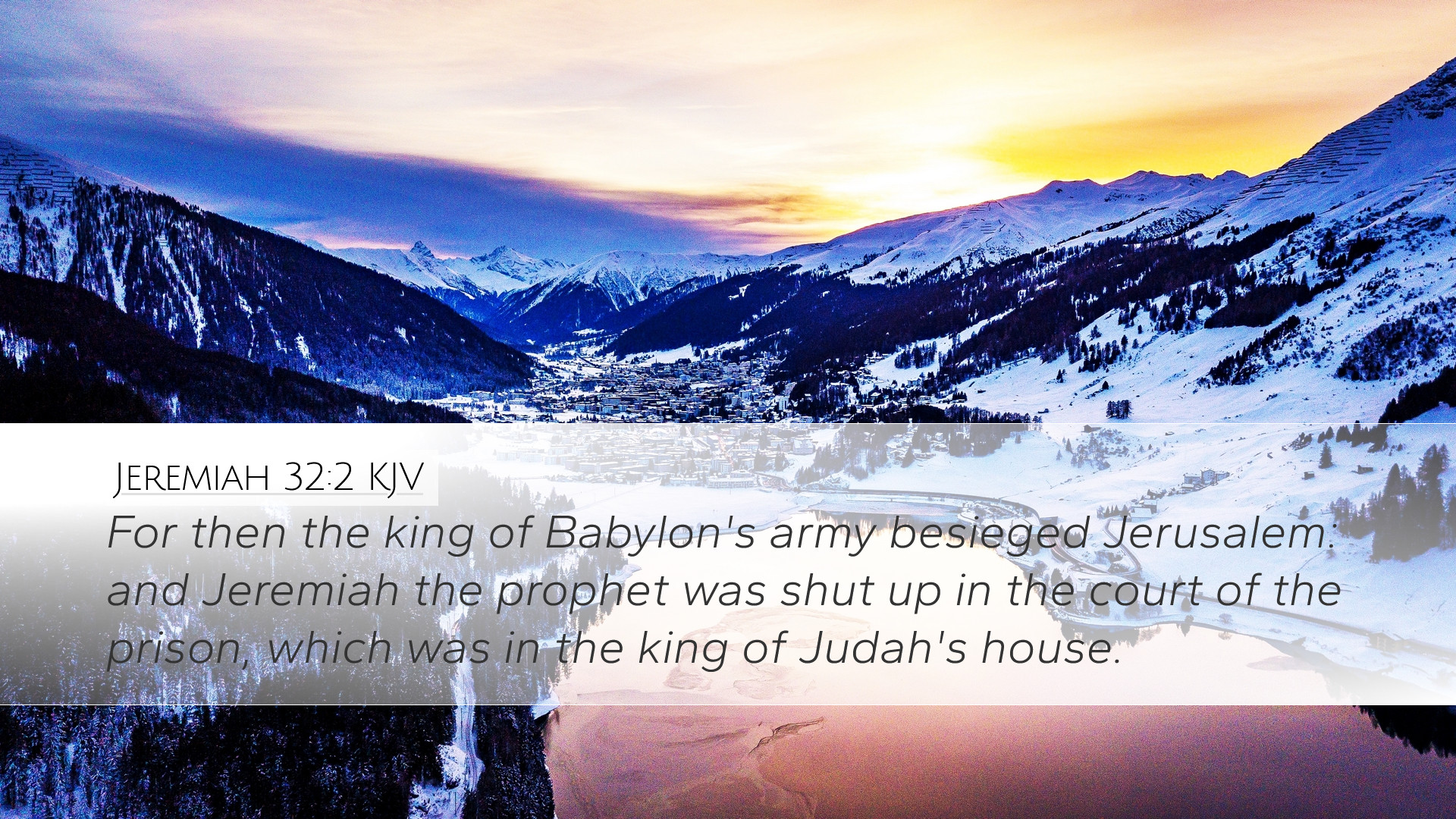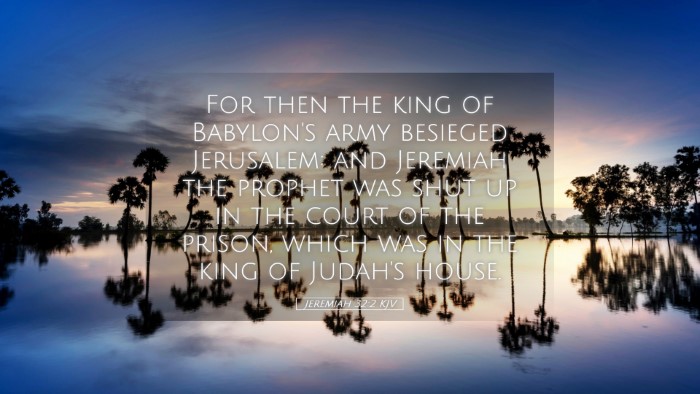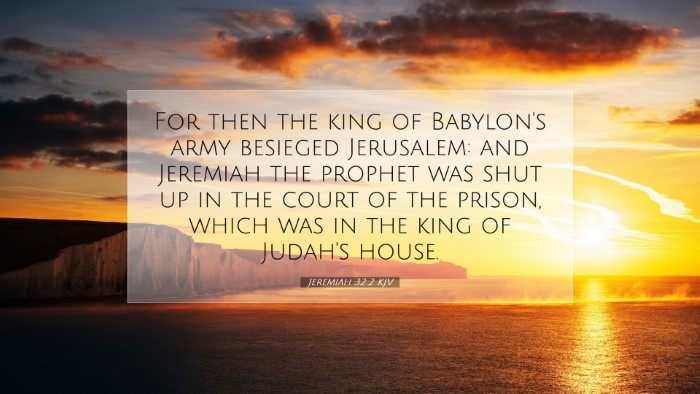Commentary on Jeremiah 32:2
Jeremiah 32:2 states, "For then the king of Babylon's army besieged Jerusalem, and Jeremiah the prophet was shut up in the court of the prison which was in the king of Judah's house." This verse provides significant insight into the dire circumstances facing Judah and sets the stage for the critical themes of hope and redemption that will unfold in the following passages. This commentary draws from the insights of public domain commentaries, offering a comprehensive exploration of this verse for pastors, students, theologians, and Bible scholars.
Contextual Background
To understand the full weight of this verse, we must consider the historical context in which it was written. Jeremiah prophesied during a tumultuous time for Judah as the Babylonian Empire threatened its very existence. The siege of Jerusalem, a culmination of Judah's persistent disobedience to God, serves as a backdrop that highlights the urgency of Jeremiah's message.
Jeremiah’s Imprisonment
In this context, the mention of Jeremiah being imprisoned reflects both the political and spiritual tensions within Judah. According to Matthew Henry, the prophet's confinement “is a just reflection of the prevailing attitude towards truth in a time of imminent judgment.” His imprisonment symbolizes the rejection of prophetic truth by the ruling authorities, and it serves as an illustration of the broader societal unwillingness to accept God's warning.
Adam Clarke elaborates on Jeremiah’s condition, noting that "his confinement was a marked contempt for his prophecies concerning the ruin of the city and temple." This response from King Zedekiah reflects a fear of losing power alongside a deep-seated disbelief in divine justice. Clarke emphasizes that this act of silencing the prophet represents a tragic culmination of Judah's spiritual decline.
Theological Implications
This verse calls attention to the theological themes of judgment and hope. Albert Barnes asserts that “the presence of God's messenger in prison typifies the spiritual bondage experienced by the people of God during times of rampant idolatry and injustice.” This dynamic underscores the interconnectedness between societal conditions and the prophetic voice within them.
Moreover, the captivity of Jerusalem and confinement of the prophet remind believers of the consequences of turning away from God’s ways. Jeremiah is a voice of hope even in the depths of despair, as he continues to convey God’s will. The imagery of Jerusalem under siege points to the imminent destruction, yet it is within this ravaged context that we will find later promises of restoration and renewal.
Prophetic Significance
Within the prophetic literature, Jeremiah is often seen as a tragic figure. Not only does he face ridicule from his contemporaries, but he is also burdened with an overwhelming message of impending doom. As Henry notes, "Jeremiah delivers his messages not from a place of triumph, but from the depths of suffering, making his prophetic call all the more compelling." His plight draws a parallel to the suffering of Christ, who also heralded a message of repentance amidst persecution.
Lessons for Today
For contemporary readers, Jeremiah 32:2 serves as a powerful reminder of the cost of prophetic ministry and the courage it takes to speak truth to power. As Barnes succinctly puts it, “Truth, especially when it interrupts the status quo, often encounters hostility and resistance.”
- Faithfulness in Adversity: Jeremiah's commitment to his prophetic calling in prison encourages believers to remain steadfast in their faith, even when circumstances suggest otherwise.
- The Importance of Prophetic Voices: The ongoing struggle to value prophetic voices in society highlights the need for vigilance in recognizing and supporting those who speak truth, especially in challenging times.
- Hope Amidst Despair: Just as Jeremiah’s words became a lifeline for a people on the brink of destruction, we too are called to embody hope for those around us facing their crises.
Conclusion
In summary, Jeremiah 32:2 encapsulates the dramatic tensions of a society teetering on the brink of disaster, marked by both human failure and divine faithfulness. The imprisonment of Jeremiah serves as a poignant reminder of the cost of faithfulness and the power of God's enduring promises amidst gloom. As we reflect on this passage, let us be inspired by Jeremiah’s example, his unyielding commitment to truth, and the hope that God extends even in the darkest of times.


